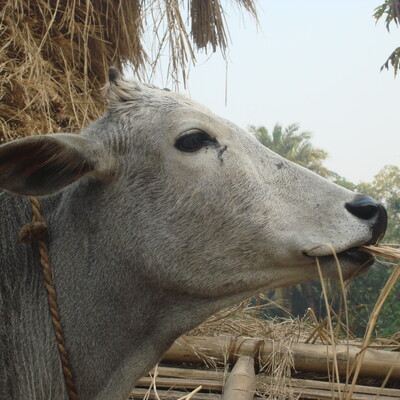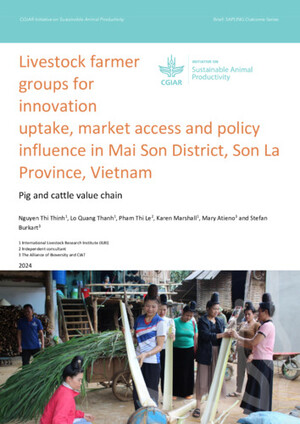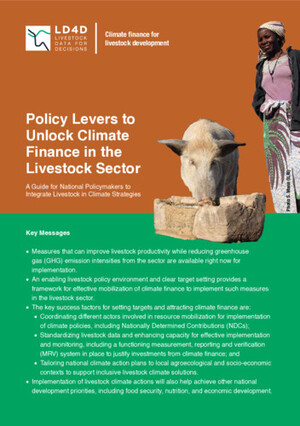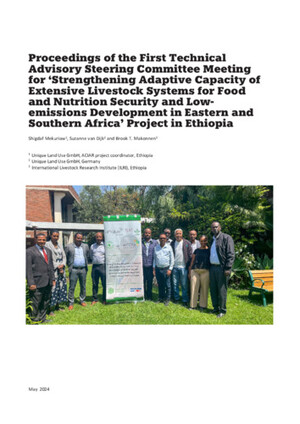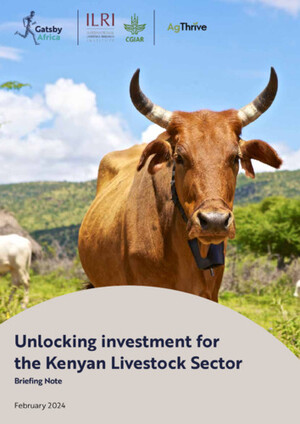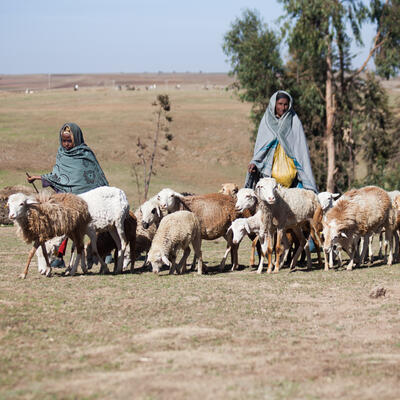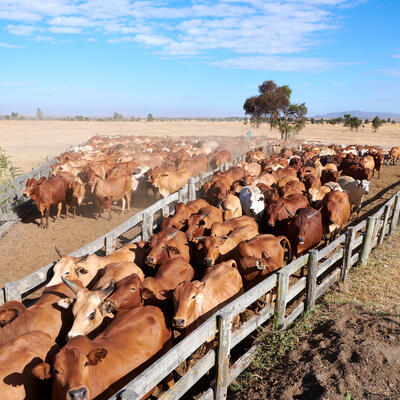
Sounding the alarm: The impact of COVID-19 on global food security and nutrition
Jimmy Smith, the director general of the International Livestock Research Institute (ILRI), spoke on 14 Oct, 2020 about how to prepare for and prevent future pandemics at a Committee on World Food Security (CFS) high-level event. The event, held virtually over three days and in lieu of the traditional annual CFS gathering because of the COVID-19 pandemic, focused on strengthening global governance of food security and nutrition. Smith spoke on Day Two of the event, which focused on the pandemic’s effect on global food security, and which was headlined by Tedros Adhanom Ghebreyesus, the director general of the World Health Organization (WHO).
Even before COVID-19, the need to push food security and nutrition to the front and centre of the global sustainable development agenda was becoming grimly clear. The Food and Agriculture Organization (FAO), shortly before the pandemic, estimated that 690 million people went hungry in 2019—up 10 million from the previous year—and warned that those numbers were continuing to rise. By 2030, the year that the world had set for itself the goal of eliminating hunger and malnutrition under the United Nations’ Sustainable Development Goals, the global number of undernourished people could exceed 840 million, said the FAO. Africa, it said, will be the continent most affected by hunger: On current trends, more than a quarter of its population will be undernourished by 2030, up from 19 percent today. The World Food Programme, using stricter parameters, has more recently estimated that 135 million people were acutely food-insecure and in crisis or worse in 2019. It has warned that the pandemic could drive an additional 130 million people into that state by the end of this year.
Smith spoke on a panel chaired by David Nabarro, a special envoy to the World Health Organization (WHO) on COVID-19 and long-time friend of the Institute. Smith’s prepared comments, based on the recently launched UNEP-ILRI report titled Preventing the next pandemic: Zoonotic diseases and how to break the chain of transmission, stressed the need to take a One Health approach that addresses human, animal and environment health with technical/scientific, institutional and policy actions undertaken from community right through to global levels. The several billion dollars it will cost to invest adequately in One Health are dwarfed by the trillions economists estimate that the current pandemic is already costing the world.
In the longer run, according to Smith, we must focus on the drivers that create opportunities for new diseases to emerge, such as the rising demand for animal protein, unsustainable agricultural intensification and the overuse of natural resources, the abuse and exploitation of wildlife, changing food supply chains and of course the ever growing threat of climate change.
Nabarro asked Smith about banning wet markets, a policy proposal that has gained traction recently, particularly in rich countries. Smith called the proposal needlessly sensationalist and said it shouldn’t even be seriously contemplated. ‘As many people in this audience know, wet markets are a primary source of food for 70 to 80% of the people in developing countries, and particularly so in low- and middle-income countries’, he said. ‘They are essential for food security, access to nutritious diets and are a source of resilience. Banning these markets would create unimaginable suffering for many, many millions.’ Smith pointed out that while ‘wet markets’ have negative connotations to some people in the West, they are simply traditional, local markets, no different than the farmers’ markets we see in North America, Europe or Australia.
Instead of banning these markets, Smith said, ‘what we need to do is to make them safer by improving the water supply, electricity and the infrastructure in these markets’. Other ‘quick wins’ to improve the safety of wet markets include training people in sanitation; educating consumers; providing solutions such as chopping boards, safe containers and disinfectants; and certifying them to produce healthy, wholesome, healthy products. ‘We believe that if we take these actions—and we have conducted extensive research on food safety in Kenya, Ethiopia, and Vietnam—that these markets can produce wholesome products, sometimes with lower bacterial counts that you find in the same products in supermarkets’, said Smith.
In his keynote speech discussing the global food security and nutrition challenges caused by the pandemic, WHO director Dr. Tedros painted a dire picture: The latest estimates are that an additional 6.7 million children will go malnourished because of the pandemic, and that 10,000 children a month could die as a result. But simply responding to the challenges posed by the pandemic would not be enough, said Dr. Tedros, since even before the pandemic some three billion people worldwide were unable to afford a healthy diet. ‘Going back to normal is not good enough’, he said. ‘The COVID-19 pandemic has reminded us that life is fragile, that health is precious, and that healthy diets are not just a luxury for the wealthy; they are a human right and a basis of national and global development.’






